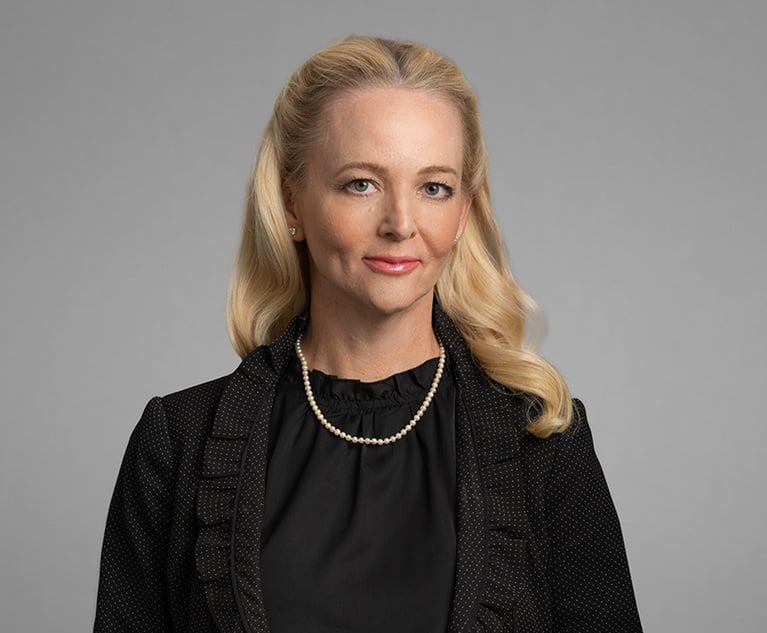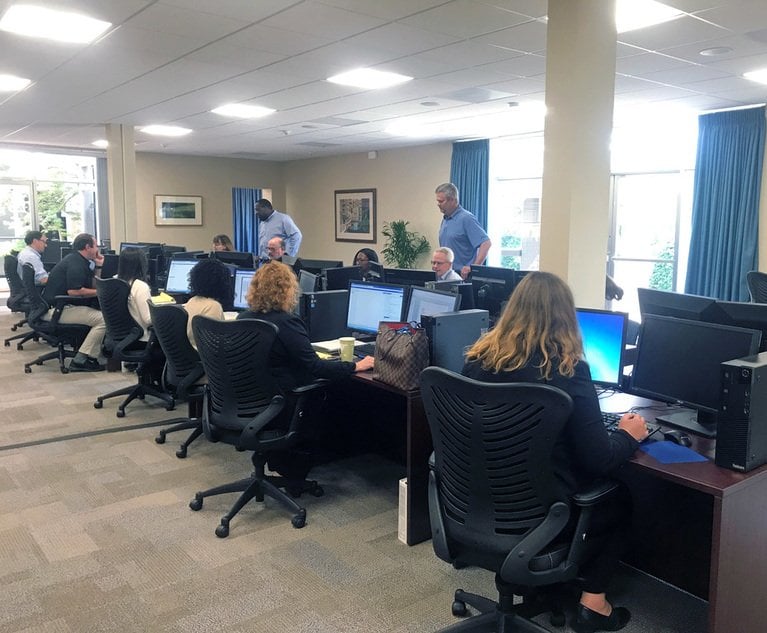What Attorneys Don't Know Can Hurt Their Cases
The distinction between e-discovery and discovery becomes less and less useful as technology becomes more deeply embedded in our daily lives and businesses.
January 05, 2015 at 06:30 AM
5 minute read
The distinction between e-discovery and discovery becomes less and less useful as technology becomes more deeply embedded in our daily lives and businesses. Regardless of the name, because of the pervasiveness of electronic evidence, attorneys must find ways to control the costs of discovering and producing electronically stored information (ESI).
To be sure, the costs associated with the discovery of ESI and the presentation of electronic evidence at trial can be staggering. In Abbott Point of Care v. Epocal, a recent case involving claims of patent infringement and tortious interference with employment contracts, the defendant submitted a bill for costs of $550,348 following a jury verdict in its favor. Two line items accounted for more than half of the bill: $175,390 for “e-discovery database charges” incurred during discovery and another $165,108 for similar charges incurred during trial. Abbott, No. CV–08–S–543–NE, 2012 WL 7810970at *2 (Nov. 5, 2012).
Such disproportionately high costs for data management should give us pause because they fly in the face of what we might expect from the efficiencies and cost savings provided by computers, networks and databases. Why have the same technologies that make it easier and less expensive to run a business increased by an order of magnitude the costs of discovery and litigation?
This content has been archived. It is available through our partners, LexisNexis® and Bloomberg Law.
To view this content, please continue to their sites.
Not a Lexis Subscriber?
Subscribe Now
Not a Bloomberg Law Subscriber?
Subscribe Now
NOT FOR REPRINT
© 2025 ALM Global, LLC, All Rights Reserved. Request academic re-use from www.copyright.com. All other uses, submit a request to [email protected]. For more information visit Asset & Logo Licensing.
You Might Like
View All
King & Spalding E-Discovery Director Jumps to Nebraska Women-Owned Firm
4 minute read
E-Discovery Law Update: Georgia Lawyer Disbarred After Putting Fake Email Into Evidence
5 minute read
E-Discovery Law Update: Georgia Lawyer Disbarred After Putting Fake Email Into Evidence
5 minute read
Law Firms' E-Discovery Centers See Growing Business From Other Firms, Clients
6 minute readTrending Stories
Who Got The Work
J. Brugh Lower of Gibbons has entered an appearance for industrial equipment supplier Devco Corporation in a pending trademark infringement lawsuit. The suit, accusing the defendant of selling knock-off Graco products, was filed Dec. 18 in New Jersey District Court by Rivkin Radler on behalf of Graco Inc. and Graco Minnesota. The case, assigned to U.S. District Judge Zahid N. Quraishi, is 3:24-cv-11294, Graco Inc. et al v. Devco Corporation.
Who Got The Work
Rebecca Maller-Stein and Kent A. Yalowitz of Arnold & Porter Kaye Scholer have entered their appearances for Hanaco Venture Capital and its executives, Lior Prosor and David Frankel, in a pending securities lawsuit. The action, filed on Dec. 24 in New York Southern District Court by Zell, Aron & Co. on behalf of Goldeneye Advisors, accuses the defendants of negligently and fraudulently managing the plaintiff's $1 million investment. The case, assigned to U.S. District Judge Vernon S. Broderick, is 1:24-cv-09918, Goldeneye Advisors, LLC v. Hanaco Venture Capital, Ltd. et al.
Who Got The Work
Attorneys from A&O Shearman has stepped in as defense counsel for Toronto-Dominion Bank and other defendants in a pending securities class action. The suit, filed Dec. 11 in New York Southern District Court by Bleichmar Fonti & Auld, accuses the defendants of concealing the bank's 'pervasive' deficiencies in regards to its compliance with the Bank Secrecy Act and the quality of its anti-money laundering controls. The case, assigned to U.S. District Judge Arun Subramanian, is 1:24-cv-09445, Gonzalez v. The Toronto-Dominion Bank et al.
Who Got The Work
Crown Castle International, a Pennsylvania company providing shared communications infrastructure, has turned to Luke D. Wolf of Gordon Rees Scully Mansukhani to fend off a pending breach-of-contract lawsuit. The court action, filed Nov. 25 in Michigan Eastern District Court by Hooper Hathaway PC on behalf of The Town Residences LLC, accuses Crown Castle of failing to transfer approximately $30,000 in utility payments from T-Mobile in breach of a roof-top lease and assignment agreement. The case, assigned to U.S. District Judge Susan K. Declercq, is 2:24-cv-13131, The Town Residences LLC v. T-Mobile US, Inc. et al.
Who Got The Work
Wilfred P. Coronato and Daniel M. Schwartz of McCarter & English have stepped in as defense counsel to Electrolux Home Products Inc. in a pending product liability lawsuit. The court action, filed Nov. 26 in New York Eastern District Court by Poulos Lopiccolo PC and Nagel Rice LLP on behalf of David Stern, alleges that the defendant's refrigerators’ drawers and shelving repeatedly break and fall apart within months after purchase. The case, assigned to U.S. District Judge Joan M. Azrack, is 2:24-cv-08204, Stern v. Electrolux Home Products, Inc.
Featured Firms
Law Offices of Gary Martin Hays & Associates, P.C.
(470) 294-1674
Law Offices of Mark E. Salomone
(857) 444-6468
Smith & Hassler
(713) 739-1250






